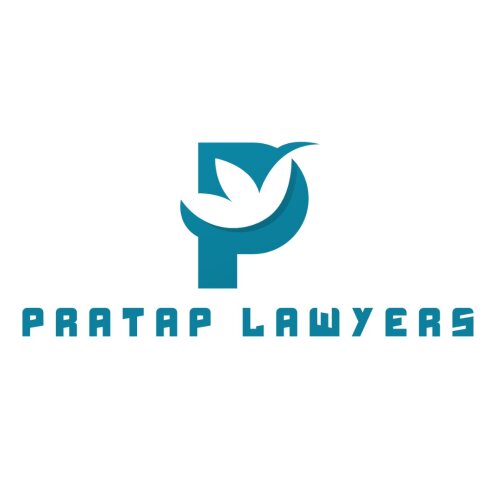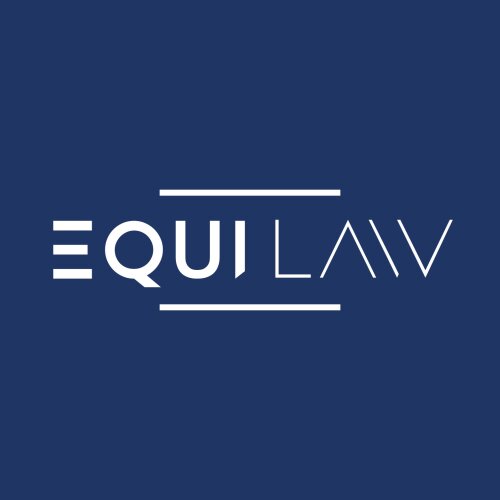Best Structured Finance Lawyers in Fiji
Share your needs with us, get contacted by law firms.
Free. Takes 2 min.
Or refine your search by selecting a city:
List of the best lawyers in Fiji
About Structured Finance Law in Fiji
Structured finance is a sector within financial law that deals with highly complex financial transactions, typically involving the pooling of financial assets and issuing securities backed by these assets. In Fiji, structured finance is an essential part of the financial services industry, facilitating investment, economic development, and risk management. The practice encompasses securitisation, syndicated lending, asset-backed securities, project finance, and other structured transactions. While the Fijian financial market is relatively smaller than those in major financial centers, the legal framework provides a regulated and stable environment for both local and international investors to engage in such transactions.
Why You May Need a Lawyer
Structured finance transactions involve intricate legal and regulatory considerations. You may need the assistance of a structured finance lawyer in Fiji for several reasons:
- If you are a business or financial institution looking to securitise assets or issue asset-backed securities.
- When arranging large loans or syndicated loans with complex terms and multiple parties.
- If you are considering project finance for infrastructure developments and need to structure funding across multiple jurisdictions or entities.
- To navigate compliance with financial regulations set by the Reserve Bank of Fiji and other authorities.
- If there is a dispute relating to loan repayments, securities, or collateral in structured products.
- For advice on the tax implications and cross-border aspects of a structured finance deal.
- To negotiate and draft transaction documents, including offering circulars, trust deeds, and security agreements.
- If you require legal due diligence on counterparties or underlying assets in a transaction.
Local Laws Overview
Structured finance activities in Fiji operate within a legal framework shaped by several key pieces of legislation and regulatory bodies:
- Reserve Bank of Fiji Act: Outlines the regulatory authority over financial institutions and certain financial transactions.
- Companies Act 2015: Governs companies established in Fiji, including their ability to enter complex financial arrangements.
- Personal Property Securities Act 2017 (PPSA): Establishes a registry for secured transactions involving personal property, vital for asset-backed lending and structured finance.
- Securities Industry Act: Regulates securities issuance, trading, and the conduct of firms involved in securities markets.
- Fiji Revenue and Customs Service: Tax compliance and implications for structured transactions and investment returns.
In addition to these, common law principles and contractual law have significant influence. Regulatory compliance, disclosure obligations, and tax structuring are all aspects where specialized legal knowledge is crucial.
Frequently Asked Questions
What is structured finance and why is it used in Fiji?
Structured finance refers to financial transactions that involve complex arrangements, such as pooling assets to create securities or project finance. It is used in Fiji to facilitate large investments, manage risk, and access capital that may not be available through conventional banking.
What are common examples of structured finance products in Fiji?
Common examples include syndicated loans, asset-backed securities, project finance structures for infrastructure, and securitization of loans or receivables.
Is structured finance regulated in Fiji?
Yes, structured finance is regulated through various laws such as the Companies Act, Securities Industry Act, and PPSA, with oversight from the Reserve Bank of Fiji and other financial regulators.
Who are the main parties involved in structured finance transactions?
Key parties include originators, arrangers, investors, trustees, special purpose vehicles (SPVs), borrowers, and legal advisors.
What is a Special Purpose Vehicle (SPV) and why is it used?
An SPV is a legally separate entity created to hold assets or liabilities for structured finance purposes, helping isolate risk and enhance investor confidence.
Do these transactions require approval from authorities in Fiji?
Some transactions, especially involving cross-border assets or public offerings of securities, may require regulatory approvals or notifications with the Reserve Bank of Fiji or the Capital Markets Development Authority.
What legal risks are associated with structured finance?
Potential legal risks include non-compliance with regulations, enforceability of security interests, bankruptcy risks, tax issues, and disputes over transaction terms.
Can foreign investors participate in structured finance in Fiji?
Yes, subject to local laws regarding foreign investment, exchange controls, and the need for proper regulatory filings and compliance.
How does the PPSA affect structured finance transactions?
The PPSA introduces a public registry for security interests in personal property, making it easier to establish, prioritize, and enforce claims to collateral in structured finance deals.
How do I choose a lawyer for structured finance in Fiji?
Look for a lawyer or firm with experience in financial law, a strong understanding of regulatory requirements in Fiji, and a track record in similar transactions.
Additional Resources
For those seeking more information or support regarding structured finance in Fiji, the following resources and organizations can be helpful:
- Reserve Bank of Fiji - The principal financial sector regulator, providing guidance and oversight for financial institutions and transactions.
- Fiji Revenue and Customs Service - For tax-related inquiries and compliance information.
- Fiji Securities Exchange - Relevant for issues involving securities or publicly traded financial instruments.
- Capital Markets Development Authority - Regulatory body for capital markets, securities, and collective investment schemes.
- Fiji Law Society - For lists of licensed lawyers and law firms in Fiji with expertise in finance and commercial law.
- Ministry of Justice - For legal frameworks relevant to corporate and financial structures.
Next Steps
If you believe you need legal assistance concerning structured finance in Fiji, take the following steps:
- Define your objectives and what you hope to achieve from your structured finance transaction or arrangement.
- Gather all relevant documents and information about the assets, parties, and nature of the transaction.
- Research and identify qualified legal professionals or firms with experience in structured finance law in Fiji.
- Schedule a consultation to discuss your needs and seek guidance on compliance, risk management, and transaction structure.
- Follow up by providing requested documents and clearly communicating your expectations and timelines.
- Ensure ongoing compliance by keeping abreast of any legal or regulatory developments that may affect your transaction.
By engaging an experienced legal advisor early in the process, you can protect your interests and maximize the success of your structured finance activities in Fiji.
Lawzana helps you find the best lawyers and law firms in Fiji through a curated and pre-screened list of qualified legal professionals. Our platform offers rankings and detailed profiles of attorneys and law firms, allowing you to compare based on practice areas, including Structured Finance, experience, and client feedback.
Each profile includes a description of the firm's areas of practice, client reviews, team members and partners, year of establishment, spoken languages, office locations, contact information, social media presence, and any published articles or resources. Most firms on our platform speak English and are experienced in both local and international legal matters.
Get a quote from top-rated law firms in Fiji — quickly, securely, and without unnecessary hassle.
Disclaimer:
The information provided on this page is for general informational purposes only and does not constitute legal advice. While we strive to ensure the accuracy and relevance of the content, legal information may change over time, and interpretations of the law can vary. You should always consult with a qualified legal professional for advice specific to your situation.
We disclaim all liability for actions taken or not taken based on the content of this page. If you believe any information is incorrect or outdated, please contact us, and we will review and update it where appropriate.
Browse structured finance law firms by city in Fiji
Refine your search by selecting a city.
















